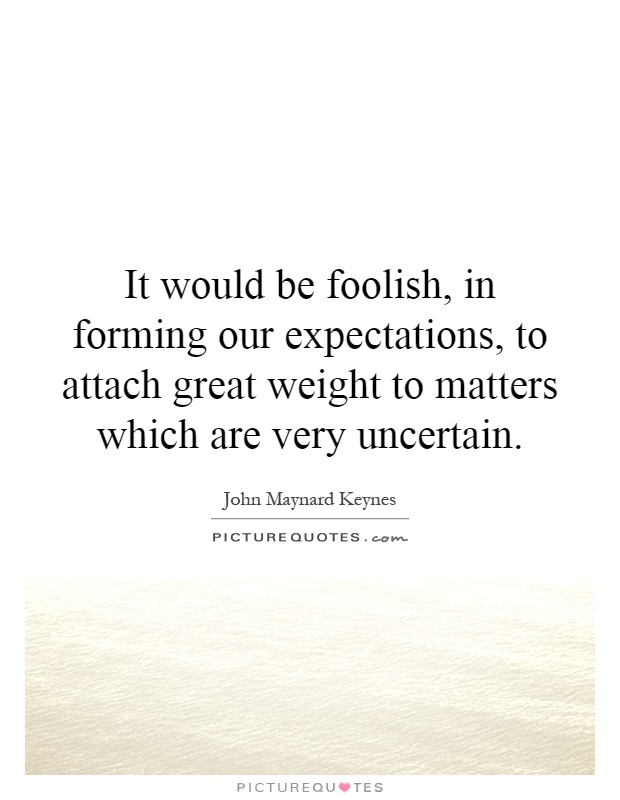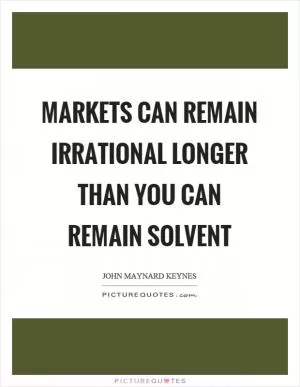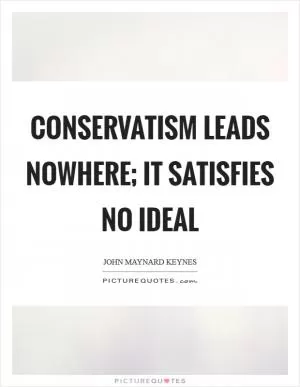It would be foolish, in forming our expectations, to attach great weight to matters which are very uncertain

It would be foolish, in forming our expectations, to attach great weight to matters which are very uncertain
John Maynard Keynes, one of the most influential economists of the 20th century, is often quoted as saying, "It would be foolish, in forming our expectations, to attach great weight to matters which are very uncertain." This statement encapsulates Keynes' belief in the importance of acknowledging and accounting for uncertainty in economic forecasting and decision-making.Keynes was a pioneer in the field of macroeconomics, and his work revolutionized the way economists think about the relationship between individuals, markets, and the overall economy. One of his key insights was the idea that economic outcomes are inherently uncertain, and that attempts to predict the future with precision are bound to fail. Instead, Keynes argued that policymakers and investors should focus on understanding the underlying forces driving economic activity and be prepared to adapt their strategies in response to changing conditions.
Keynes' emphasis on uncertainty was a direct challenge to the prevailing economic orthodoxy of his time, which held that markets were inherently stable and self-correcting. Keynes argued that this view was overly simplistic and failed to account for the complex and unpredictable nature of economic systems. He believed that economic outcomes were shaped by a wide range of factors, including human psychology, social norms, and institutional structures, all of which were subject to change and uncertainty.












 Friendship Quotes
Friendship Quotes Love Quotes
Love Quotes Life Quotes
Life Quotes Funny Quotes
Funny Quotes Motivational Quotes
Motivational Quotes Inspirational Quotes
Inspirational Quotes